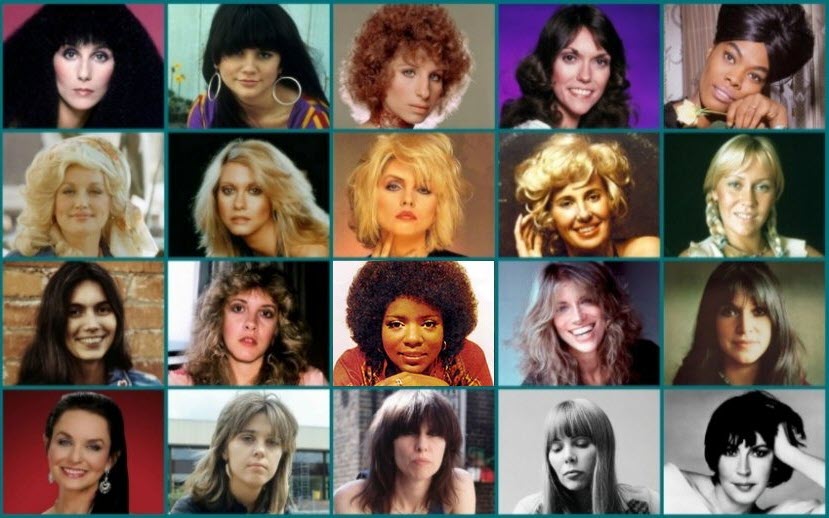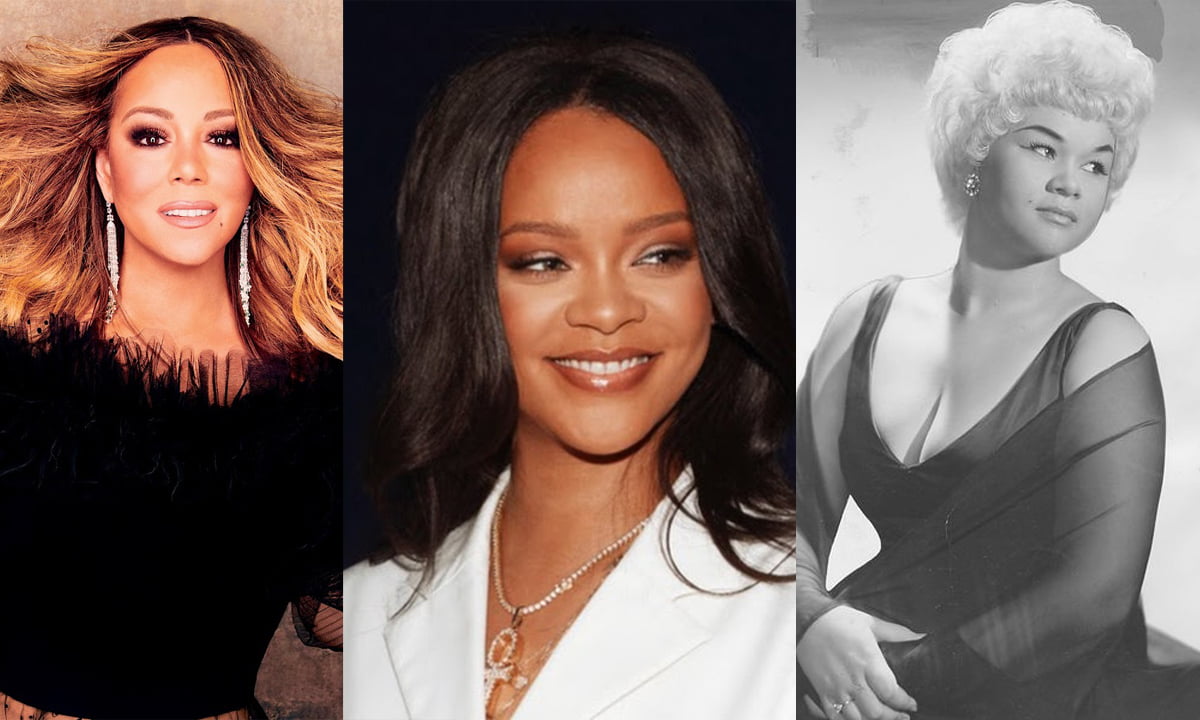Black female singers from the 60s, 70s, and 80s have left an indelible mark on music history, shaping genres and inspiring generations. Their powerful voices and heartfelt performances have defined eras of music that resonate deeply with listeners worldwide. These artists not only broke racial and gender barriers but also became cultural icons whose influence continues to this day.
The contributions of black female singers during these decades cannot be overstated. They played pivotal roles in the evolution of soul, R&B, jazz, funk, and pop music. Their music transcended racial boundaries, bringing people together through universal themes of love, empowerment, struggle, and triumph. As we delve into this article, you'll discover how these legendary artists revolutionized the music industry and beyond.
From Aretha Franklin's soulful anthems to Whitney Houston's soaring ballads, the legacy of black female singers remains vibrant and relevant. This article celebrates their achievements, explores their unique styles, and highlights their impact on music and society. Join us as we journey through the decades to honor these incredible talents.
Read also:Indian Mydesi Net
Table of Contents
- Biographies of Black Female Singers
- Black Female Singers of the 60s
- Black Female Singers of the 70s
- Black Female Singers of the 80s
- Musical Impact and Legacy
- Cultural Influence
- Awards and Recognition
- Challenges Faced by Black Female Singers
- Modern Influence
- Conclusion
Biographies of Black Female Singers
Overview of Key Artists
Before diving into specific decades, it's essential to provide a brief overview of some of the most influential black female singers. These women not only defined their respective eras but also set the stage for future generations of artists. Below is a table summarizing key information about these iconic singers:
| Name | Birth Year | Genre | Notable Achievements |
|---|---|---|---|
| Aretha Franklin | 1942 | Soul, R&B | First woman inducted into the Rock and Roll Hall of Fame |
| Diana Ross | 1944 | Pop, R&B | Iconic lead singer of The Supremes |
| Whitney Houston | 1963 | Pop, R&B | Highest-selling female artist of all time |
| Chaka Khan | 1953 | Funk, R&B | Ten Grammy Awards |
Black Female Singers of the 60s
Aretha Franklin: The Queen of Soul
Aretha Franklin, often referred to as the "Queen of Soul," was a defining figure in the music scene of the 1960s. Her powerful voice and emotive performances became synonymous with the era's civil rights movement. Songs like "Respect" and "Chain of Fools" became anthems for empowerment and equality.
Franklin's impact extended beyond music, as she became a symbol of strength and resilience for women and African Americans alike. Her ability to convey deep emotion through her voice set a new standard for soul music.
Black Female Singers of the 70s
Diana Ross: A Voice of Elegance
Diana Ross, a key figure in the 1970s, rose to fame as the lead singer of The Supremes. Her solo career took off in the '70s, where she became known for her elegant stage presence and versatile vocal range. Hits like "Ain't No Mountain High Enough" and "Touch Me in the Morning" showcased her ability to blend genres seamlessly.
Ross's influence on fashion and entertainment made her a cultural icon, paving the way for future black female artists to explore diverse artistic expressions.
Black Female Singers of the 80s
Whitney Houston: The Voice of a Generation
The 1980s introduced the world to Whitney Houston, whose voice captivated audiences worldwide. Her debut album in 1985 became the best-selling debut album by a female artist. Songs like "Greatest Love of All" and "I Wanna Dance with Somebody" solidified her status as a global superstar.
Read also:Best Western Plus Island Palms Hotel Marina San Diego
Houston's technical prowess and emotional depth set her apart, making her one of the most celebrated voices in music history.
Musical Impact and Legacy
Shaping Genres and Breaking Boundaries
Black female singers from the 60s, 70s, and 80s played crucial roles in shaping various music genres. Their innovative approaches to songwriting, arrangement, and performance influenced countless artists across different eras. The fusion of soul, R&B, and pop created a rich tapestry of sounds that continue to inspire contemporary musicians.
Some key contributions include:
- Expanding the reach of soul music globally
- Incorporating funk and jazz elements into mainstream pop
- Introducing new vocal techniques and styles
Cultural Influence
Breaking Barriers and Inspiring Change
Beyond music, these artists were instrumental in breaking racial and gender barriers. Their success challenged societal norms and opened doors for future generations. By using their platforms to address social issues, they became advocates for equality and justice.
Some notable examples include:
- Aretha Franklin's involvement in the civil rights movement
- Diana Ross's impact on fashion and entertainment
- Whitney Houston's role in promoting positive self-image
Awards and Recognition
Celebrating Achievements
The accomplishments of black female singers have been recognized through numerous awards and honors. These accolades reflect their significant contributions to music and culture. Below are some highlights:
- Aretha Franklin: Inducted into the Rock and Roll Hall of Fame
- Diana Ross: Lifetime Achievement Grammy Award
- Whitney Houston: 30 Billboard Music Awards
Challenges Faced by Black Female Singers
Overcoming Obstacles
Despite their success, black female singers faced numerous challenges throughout their careers. Racial discrimination, gender bias, and industry exploitation were common obstacles they had to navigate. Their resilience and determination paved the way for future artists to demand fair treatment and recognition.
Support from fans and allies played a critical role in overcoming these challenges, proving the power of community and solidarity.
Modern Influence
Inspiring Today's Artists
The legacy of black female singers from the 60s, 70s, and 80s continues to inspire contemporary artists. Many modern musicians cite these legends as major influences, drawing from their techniques, styles, and messages. The evolution of music owes much to the groundbreaking work of these pioneers.
Artists such as Beyoncé, Alicia Keys, and H.E.R. have built upon the foundation laid by these iconic voices, ensuring their impact endures.
Conclusion
In conclusion, black female singers of the 60s, 70s, and 80s have left an indelible mark on music and culture. Their contributions transcend time, inspiring generations and shaping the industry in profound ways. By celebrating their achievements, we honor their legacy and acknowledge their enduring influence.
We encourage you to share this article with others and explore more content about these remarkable artists. Your support helps keep their stories alive and ensures their impact continues to resonate. Thank you for joining us on this journey through music history.


